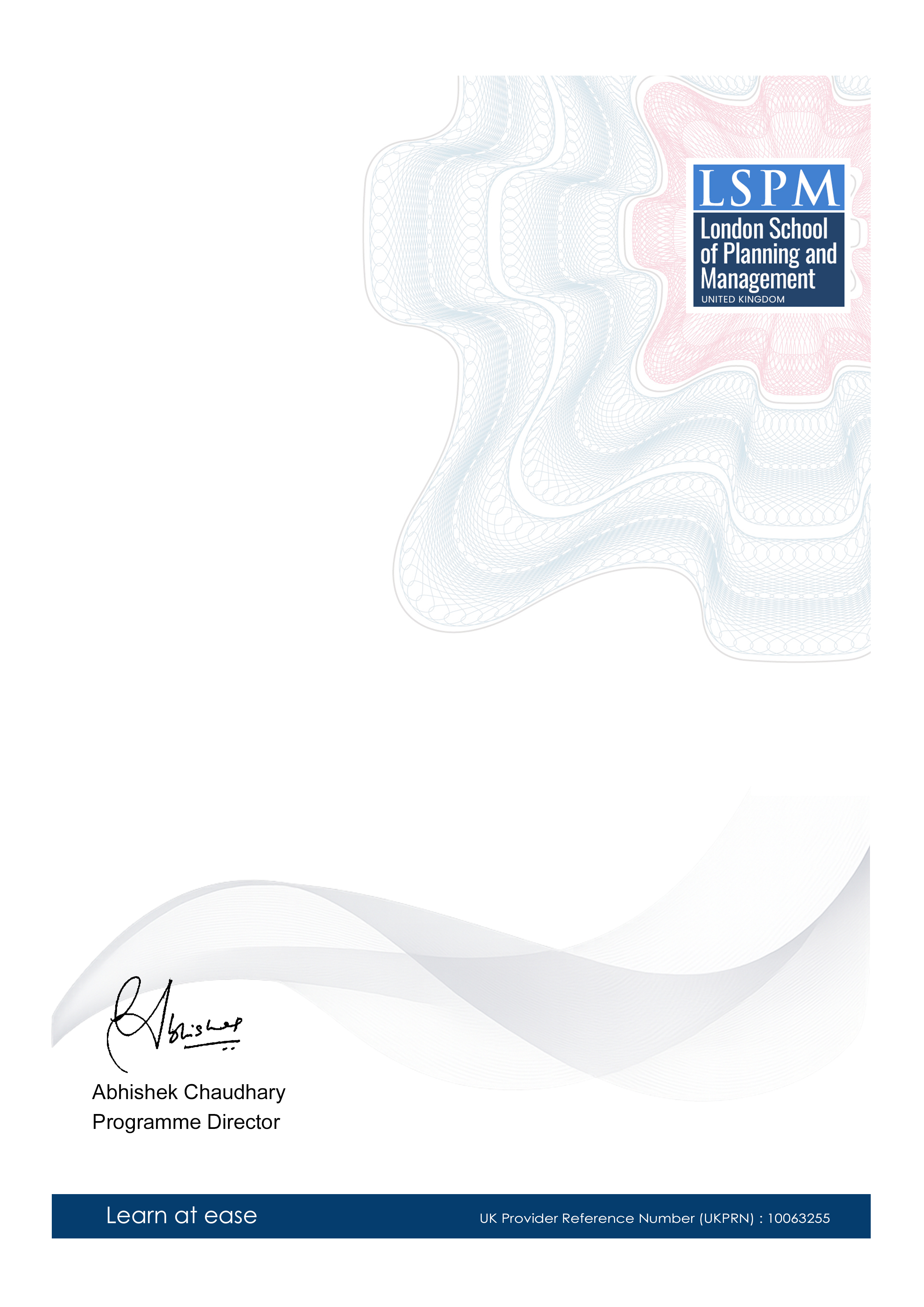Certificate Programme in Marine Fisheries Policy
-- viewing nowCertificate Programme in Marine Fisheries Policy: This certificate course is crucial for individuals interested in marine resource management and policymaking. With the increasing demand for sustainable fishing practices and marine conservation, there is a high industry need for professionals who can develop and implement effective marine fisheries policies.
6,608+
Students enrolled
GBP £ 149
GBP £ 215
Save 44% with our special offer
About this course
100% online
Learn from anywhere
Shareable certificate
Add to your LinkedIn profile
2 months to complete
at 2-3 hours a week
Start anytime
No waiting period
Course details
• Introduction to Marine Fisheries Policy
• Fisheries Management Frameworks and Institutions
• Fisheries Resource Assessment and Management
• Marine Protected Areas and Biodiversity Conservation
• Fisheries Policy and Sustainable Development
• Fisheries Economics and Trade
• Climate Change and Marine Fisheries
• Aquaculture Policy and Management
• Fisheries Law and Enforcement
• Stakeholder Engagement and Governance in Fisheries
Career path
Entry requirements
- Basic understanding of the subject matter
- Proficiency in English language
- Computer and internet access
- Basic computer skills
- Dedication to complete the course
No prior formal qualifications required. Course designed for accessibility.
Course status
This course provides practical knowledge and skills for professional development. It is:
- Not accredited by a recognized body
- Not regulated by an authorized institution
- Complementary to formal qualifications
You'll receive a certificate of completion upon successfully finishing the course.
Why people choose us for their career
Loading reviews...
Frequently Asked Questions
Skills you'll gain
Course fee
- 3-4 hours per week
- Early certificate delivery
- Open enrollment - start anytime
- 2-3 hours per week
- Regular certificate delivery
- Open enrollment - start anytime
- Full course access
- Digital certificate
- Course materials
Get course information
Earn a career certificate

